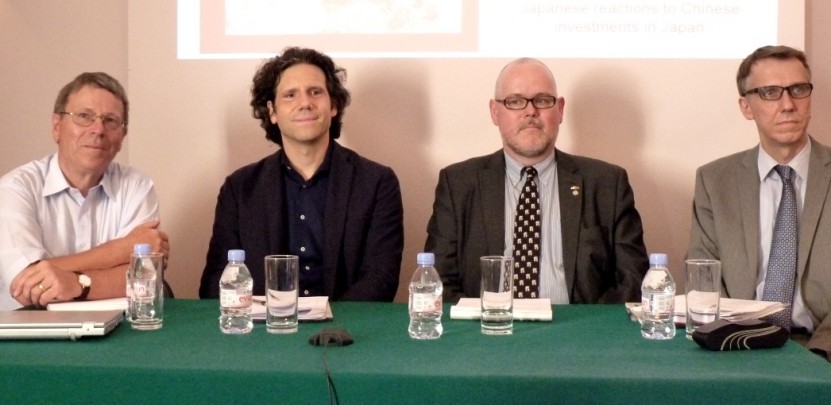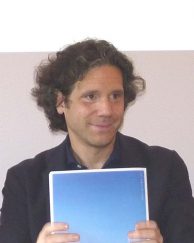 Book launch
Book launchTuesday 24 June 2014
6:00pm – 7:00pm
Governing Insecurity in Japan: The Domestic Discourse and Policy Response
13/14 Cornwall Terrace, Outer Circle, London NW1 4QP
Organised by The Daiwa Anglo-Japanese Foundation
Edited by Wilhelm Vosse, Reinhard Drifte, and Verena Blechinger-Talcott
Published by Routledge
Since the end of the Cold War, Japan’s security environment has changed significantly. While, on the global level, the United States is still Japan’s most important security partner, the nature of the partnership has changed as a result of shifting demands from the United States, new international challenges such as the North Korean nuclear programme and the rapid rise of China. At the same time, Japan has been confronted with new, ‘non-traditional’ security threats such as international terrorism, the spread of infectious diseases, and global environmental problems. On the domestic level, demographic change, labour migration, economic decline, workplace insecurity, and a weakening impact of policy initiatives challenge the sustainability of the lifestyle of many Japanese and have led to a heightened sense of insecurity among the Japanese public.
This book focuses on the domestic discourse on insecurity in Japan and goes beyond military security. Wilhelm Vosse and Paul Midford discussed Japan’s growing perception of domestic, regional and global insecurity, the domestic security discourse and the changing role of military forces, David Chiavacci discussed problems of labour migration and demographic change, and Reinhard Drifte examined the perceived risk of Chinese foreign investment.
About the contributors

Professor Reinhard Drifte
Reinhard Drifte is Professor Emeritus of Newcastle University and visiting professor at Japanese and French universities. He is also an Associate Fellow at the Royal United Services Institute. His main research interests are Japanese-Chinese relations, Japanese foreign policy in general, international security in Northeast Asia and EU-East Asia relations. Book publications include Japan’s Security Relations with China since 1989: From Balancing to Bandwagoning? (Routledge, 2002), Japan’s Quest For A Permanent Security Council Seat: A Matter of Pride or Justice? (Macmillan, 1999) and Japan’s Foreign Policy in the 1990s: From Economic Superpower to What Power? (Macmillan 1998 and 1996).

Professor Wilhelm Vosse
Wilhelm Vosse is Professor of Political Science and International Relations at the International Christian University (ICU), Tokyo, Japan, and is currently academic visitor at the University of Oxford. His research interests include Japanese foreign and security policy and EU-Japan security relations. His recent publications include: Comparing Japanese, Australian and European Responses to ‘out-of-area’ Security Challenges, in Tow and Kersten (eds.) Bilateral Perspectives on Regional Security, (Palgrave, 2012: 160–182) and Middle Power, Civilian Power, or New Power? Comparing Underlying Factors of the Security Policy in Japan and Germany, Journal of Social Science, 74: 5-25 (2012)

Professor Paul Midford
Paul Midford is Professor and Director of the Japan Program at the Norwegian University for Science and Technology (NTNU) in Trondheim. His research interests include Japanese foreign and defense policies, the impact of public opinion on policy, renewables and energy security, and East Asian security multilateralism. Recent publications include Rethinking Japanese Public Opinion and Security: From Pacifism to Realism? (Stanford University Press, 2011).

Professor David Chiavacci
David Chiavacci is Professor in Social Science of Japan at the University of Zurich, Switzerland. His research interests are economic and political sociology. Recent publications include Japan in the “Global War for Talent’: Changing Concepts of Valuable Foreign Workers and Their Consequences in Asien: The German Journal of Contemporary Asia, 123: 27–47 (2012).